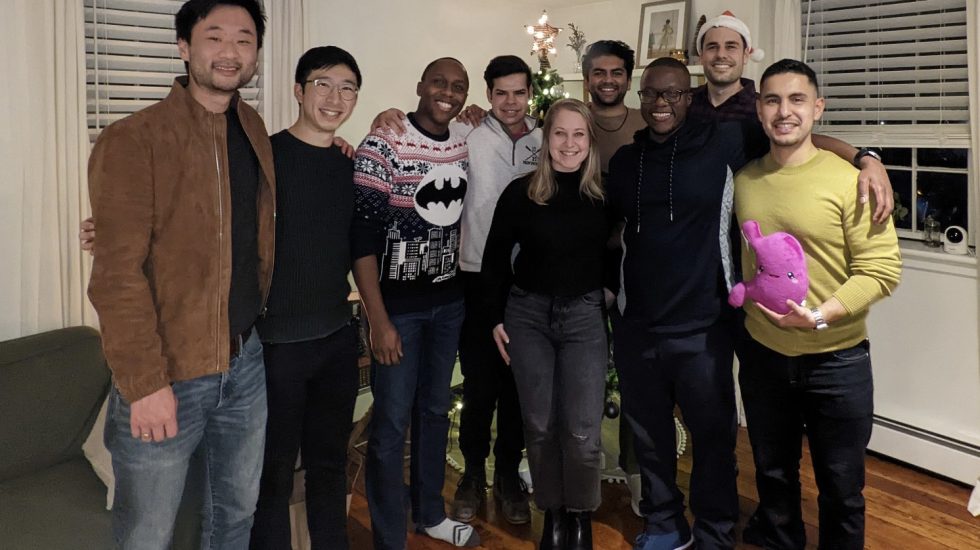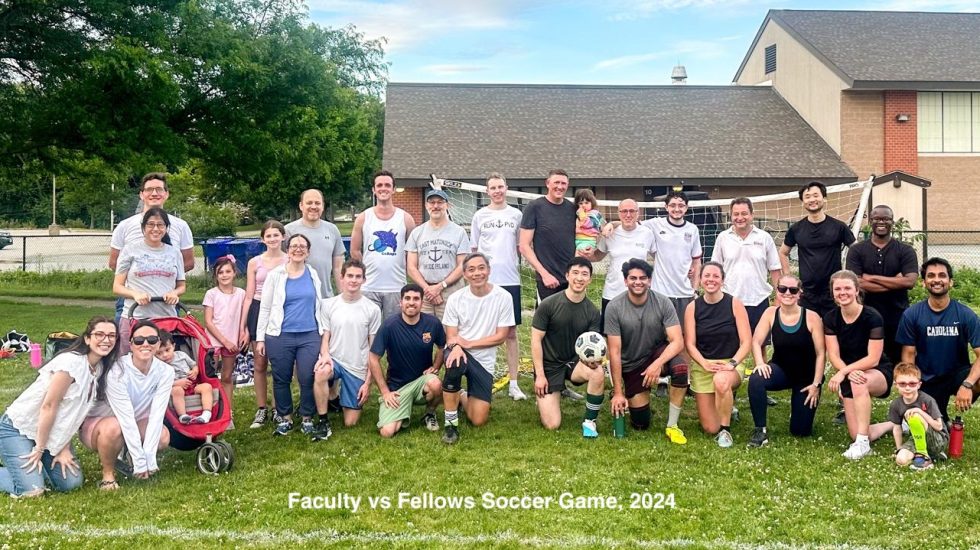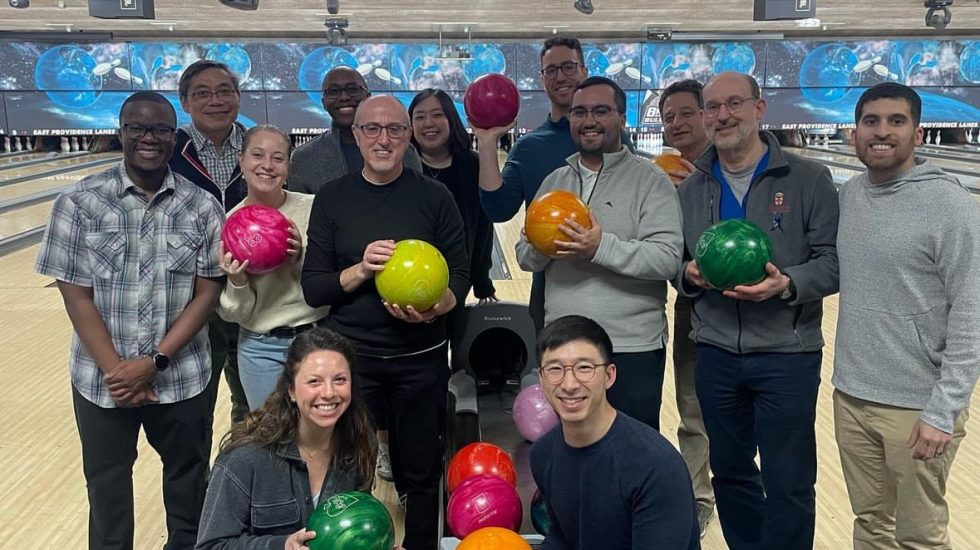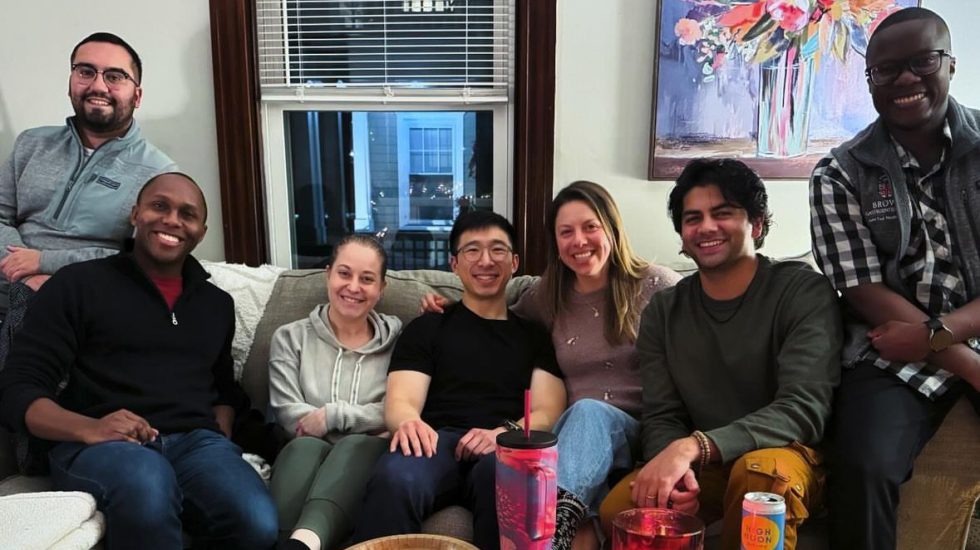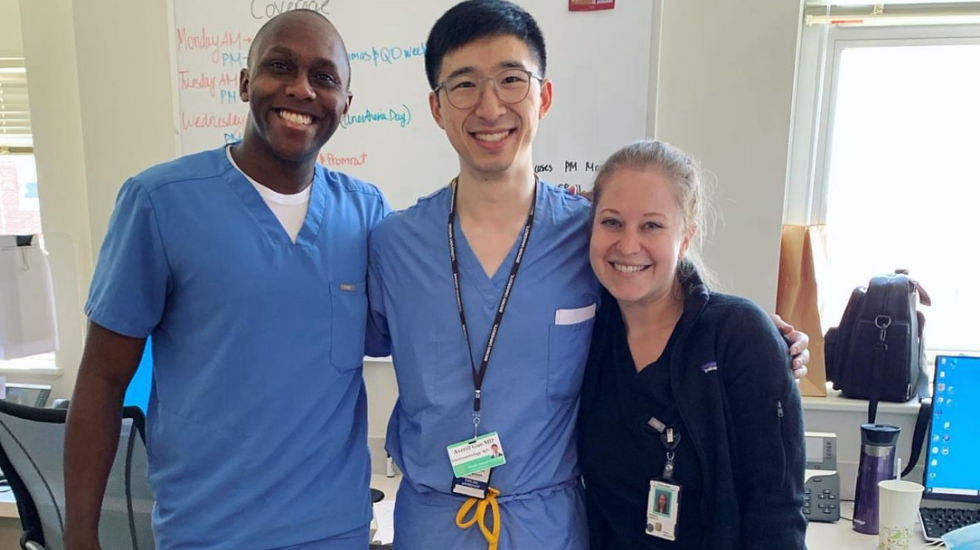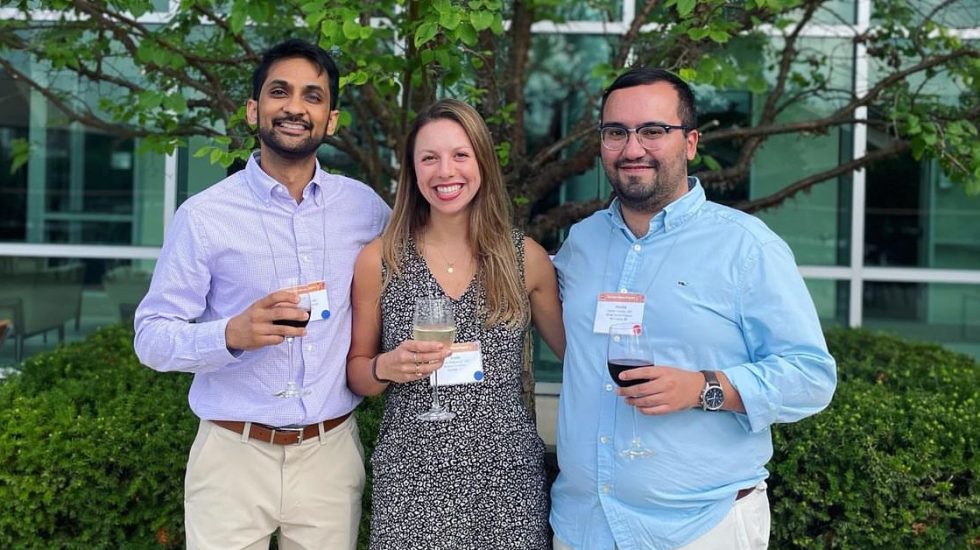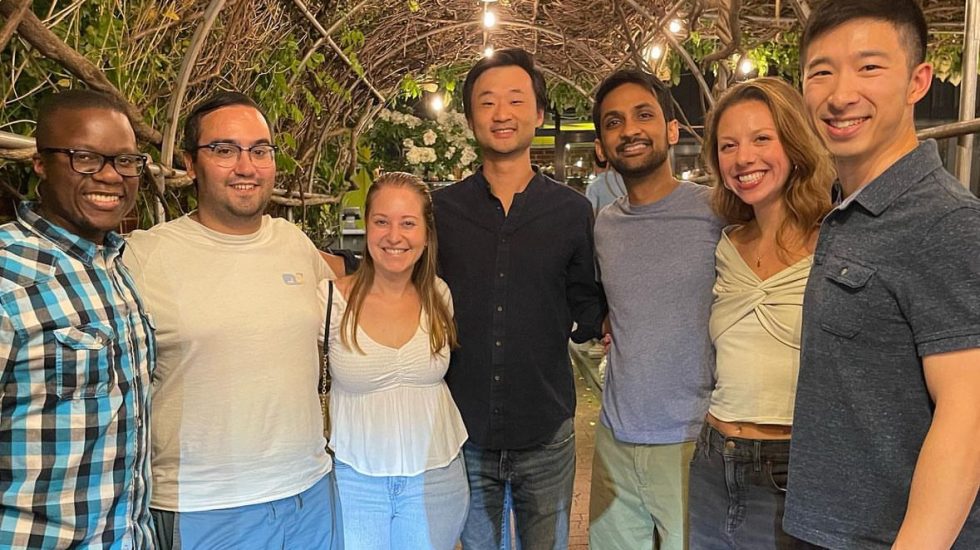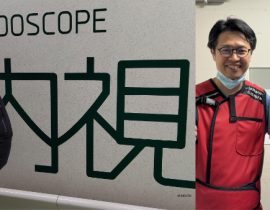Gastroenterology – Fellowship Program
The Warren Alpert Medical School of Brown University and affiliated hospitals (Rhode Island Hospital, The Miriam Hospital, and Providence Veterans Affairs Medical Center) offer a three-year ACGME- accredited training program in gastroenterology for three fellows each year.
The goal of the program is to prepare board eligible internists for a career in clinical or academic gastroenterology. The atmosphere is scholarly and provides a wide exposure to clinical gastroenterology and hepatology and to related clinical, translational and basic scientific research. The fellowship aims to inspire clinical excellence and mold socially responsible physicians in an atmosphere that promotes congeniality, diversity, a personalized approach to trainee aspirations and fosters a spirit for life-long learning. The program is customized to the individual fellow with the aim of producing a strong foundation in general gastroenterology. In addition, it provides an opportunity to sub-specialize in a niche such as hepatology, advanced endoscopy, GI motility, inflammatory bowel disease (IBD) or women’s health
The Curriculum
In the first year of fellowship (PGY4) two week cycles are spent rotating on the inpatient consult service at Rhode Island Hospital, the inpatient consult service at the VA Medical Center and the ambulatory clinic and outpatient endoscopy block. This cycle is then repeated through the first year. The second (PGY5) year includes 4-6 months total time to develop a research program. There are many choices with particular emphasis on the molecular basis of gastroenterological and liver diseases, translational and clinical programs in inflammatory bowel disease, and clinical research in hepatology including viral hepatitis and NAFLD. Fellows also participate in a quality improvement project, and in a one month nutrition rotation. Extensive experience in specialized endoscopic techniques is available at the PGY6 level, including endoscopic retrograde cholangiopancreatography (ERCP), endoscopic ultrasound (EUS) esophageal and colonic stents placement and radiofrequency and cryoablative esophageal therapies. Over the course of the program, each fellow will perform about 1,500 endoscopic procedures, including 100-200 advanced procedures (ERCP and EUS).
Electives
Up to three elective months are available in the PGY5/6 years. In recent years hepatology and IBD have been especially popular electives. Furthermore, each fellow is encouraged to take advantage of a funded, one-month international elective in their final year.
Women's Gastrointestinal Health
In the PGY5 year all fellows rotate at the Center for Women’s Gastrointestinal Medicine. This rotation is focused on gastrointestinal and hepatologic pathology of pregnancy. In addition, gender-specific areas including pelvic floor dysfunction and gastrointestinal gynecological oncology as well as bariatric surgery outpatient evaluation is explored.
For physicians who wish to develop an academic career focused on women’s gastroenterological health, there is a Women’s Gastroenterological Health Pathway, directed by Dr. Amanda Pressman, that is available to one fellow every three years. After the common PGY 4 year, a fellow in the Women’s GI Health Pathway will spend additional time at the Women’s Medicine Collaborative, building expertise in women’s gastroenterological health. This will include GI disorders related to or impacting pregnancy, pelvic floor disorders, functional GI disorders, GI motility, and GI and liver disorders more prevalent in women. A fellow in this pathway will develop clinical and research skills focused on projects related to this specialized patient population.Pancreatico-Biliary Program
Each third-year fellow will spend at least 4 months rotating on the advanced endoscopy service at RI Hospital. During this rotation, the fellow will perform therapeutic ERCPS including biliary stenting of advanced neoplasms, stone extraction as well as direct cholangioscopy with electrohydraulic lithotripsy. Fellows are actively involved in diagnostic and therapeutic endoscopic ultrasound including pancreatic cysts drainage via lumen apposing metal stent cystogastrostomy. In addition, the fellow will learn endoscopic ablation therapies for Barrett’s esophagus and esophageal cancers, esophageal and enteral stent placement as well as endoscopic mucosal resectionof large polyps. The fellow will also participate in both spiral and double balloon enteroscopy.
Inflammatory Bowel Disease
Several GI attendings have their clinical practice focused on IBD. First year fellows spend a half day per week in the Rhode Island Hospital Outpatient IBD Clinic (Chapman St). There is also a robust IBD population at the Providence VA Medical Center that all fellows manage as part of their patient panel. In addition, fellows participate in the weekly national “IBD Live” multidisciplinary, multicenter teleconference and quarterly joint Brown GI/Colorectal Surgery IBD conferences.
Division Conferences
| Journal Club | Rhode Island Hospital | Twice Monthly |
| Pathophysiology Seminar | Rhode Island Hospital | Weekly |
| IBD Tele-conference | Rhode Island Hospital | Weekly |
| Case Management | Rhode Island Hospital | Twice Monthly |
| Board Review Course | Rhode Island Hospital | Monthly |
| Pathology | Rhode Island Hospital | Weekly |
| Multidisciplinary Esophagus Group Meeting | Miriam Hospital | Quarterly |
Fast Facts
- Graduates: There are no 4th year positions in our program. Over the past 10 years, 13 graduating fellows have pursued 4th year training (9 in advanced endoscopy, 2 in IBD, 2 in transplant hepatology), 14 have joined private practices and 7 have taken full-time academic positions. All passed their GI board examination at their first attempt.
- There is no liver transplant program in Rhode Island; however, many fellows have pursued away rotations at liver transplant centers during their PGY 5 or PGY 6 years.
- On-call: On-call commitment is 1 in 9 nights and weekends, covering RI hospital and the VA Medical Center only. Call is equitably spaced across each PGY year.
- Teaching: Fellows supervise residents and medical students on GI electives, and lead small groups at the medical school during the students 2nd year GI curriculum.
- Click here to view Salary and Benefits for 2025-2026.
How To Apply
The Brown University Fellowship Program is a participant in the National Residency Match. Application for a position in the Brown gastroenterology fellowship is through the electronic residency application service. We will be using Signaling in the upcoming application cycle.
For inquiries relating to the fellowship contact Lorie Griffin, Program Coordinator, at lgriffin@brownhealth.org or Dr. Steven Moss, Program Director at Steven_Moss@brown.edu.
About Us
The Department of Medicine at Alpert Medical School is comprised of eleven distinct Divisions. These Divisions, working in conjunction with the community doctors who comprise our Primary Care offerings, provide patients with an outstanding level of care both within the Brown affiliated hospitals and throughout several community-based clinical locations. In addition to patient services, several of our Divisions offer exceptional programs for Residents and Fellows within their designated areas of expertise.
How To Reach Us
Office of the Physician-in-Chief
Louis B. Rice, MD
593 Eddy Street
Providence, RI 02903
Louis B. Rice, MD
593 Eddy Street
Providence, RI 02903


